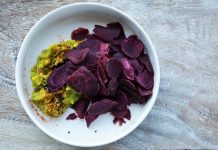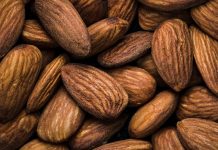
High blood pressure is often termed the “silent killer” because it typically has no symptoms until it has done significant damage to the heart and arteries.
Nearly half of the adults in the United States have high blood pressure, but many are unaware of this fact. The relationship between food and high blood pressure is significant, and choosing the right foods can help manage it effectively.
This article offers easy-to-understand information about the best foods to control high blood pressure.
Understanding High Blood Pressure and Its Impact
High blood pressure or hypertension is a condition where the blood flows through the arteries at higher than normal pressures.
If left uncontrolled, it can lead to serious health problems such as heart disease, stroke, and kidney disease. Managing your diet can play a crucial role in controlling high blood pressure and preventing these health complications.
The Best Foods for Managing High Blood Pressure
Many foods can help lower blood pressure by relaxing the blood vessels, reducing inflammation, and balancing electrolytes in the body. Here is a compilation of foods, supported by research, that can aid in managing high blood pressure.
- a) Leafy Greens:
Research suggests that leafy green vegetables like spinach, kale, and swiss chard, which are high in potassium, help balance the amount of sodium in our cells, leading to lower blood pressure.
- b) Berries:
Berries, especially blueberries, are rich in flavonoids, which have been found to lower high blood pressure. A study published in the American Journal of Clinical Nutrition found that consuming these can lead to a drop in blood pressure levels.
- c) Beets:
Beetroots have been studied for their ability to lower blood pressure due to their high levels of nitrate. A 2015 study found that beetroot juice could reduce blood pressure in people with hypertension when consumed as part of a regular diet.
- d) Oats:
Oats contain beta-glucans, a type of soluble fibre that can lower cholesterol levels and support heart health. Studies have shown that eating oats regularly can have a modest effect on lowering blood pressure.
- e) Bananas:
Bananas are a convenient snack and a great source of potassium, which can help regulate blood pressure. Research recommends incorporating bananas into a balanced diet to help control hypertension.
- f) Fatty Fish:
Fatty fish like salmon and mackerel are rich in omega-3 fatty acids, which have been proven to lower blood pressure. The American Heart Association recommends eating at least two servings of fatty fish per week as part of a heart-healthy diet.
- g) Seeds:
Flaxseeds and sunflower seeds are packed with nutrients and omega-3 fatty acids, which have been found to reduce blood pressure levels. A 2013 study indicated that consuming flaxseeds can significantly lower blood pressure, especially in patients with hypertension.
Incorporating Foods into Daily Diet
Incorporating these foods into your daily diet isn’t difficult. Simple changes, like adding more salads to your meals, choosing oats for breakfast, or having fruits like bananas as snacks, can make a significant difference.
Regular, balanced meals consisting of these nutrient-rich foods, coupled with maintaining a healthy lifestyle, can contribute to long-lasting heart health.
Conclusion
Controlling high blood pressure is crucial to prevent life-threatening health issues, and the foods we eat play a vital role in achieving this balance.
By including heart-healthy foods like leafy greens, berries, beets, oats, bananas, fatty fish, and seeds in our diet, we can manage high blood pressure effectively.
These dietary choices, backed by scientific research, are practical and accessible steps towards a healthier, happier heart and a longer, more vibrant life.
Whether you’re dealing with high blood pressure or looking to prevent it, making mindful food choices is a step in the right direction.
Follow us on Twitter for more articles about this topic.
Copyright © 2023 Scientific Diet. All rights reserved.








